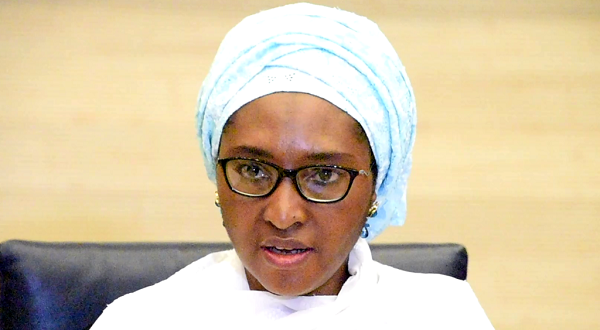Business
Nigerian govt excludes sanitary pads, 19 others from VAT hike

Sanitary pads and 19 other basic food items have been exempted from the new Valued Added Tax (VAT) increase expected to take effect from February.
The items are additives (honey), bread, cereals, cooking oils, culinary herbs, fish, flour and starch, fruits (fresh or dried), live or raw meat and poultry, milk, nuts, pulses, roots, salt, vegetables, water (natural water and table water).
The Senior Special Assistant on Media and Publicity to the Vice President, Laolu Akande, who disclosed this in a statement in Abuja, said the VAT increase would not lead to increase cost of living for Nigerians.
The Finance Bill, the Federal Government, said would promote fiscal equity and support Micro, Small and Medium Enterprises (MSMES).
President Muhammadu Buhari last week signed the Finance Act to increase the government’s revenue base.
The President presented the bill alongside the 2020 Appropriation Bill which was signed into law by the on January 13.
The statement read: “In a bid to ensure that the cost of living does not rise for Nigerians because of the changes in the Value-Added Tax, several basic food items, locally manufactured sanitary towels, pads, and tuition relating to the nursery, primary, secondary and tertiary education have been added to the exemption list of goods and services on the VAT under the Finance Bill 2019, signed by President Muhammadu Buhari last week, on the 13th January 2020.
“Amongst other benefits, the law will consolidate efforts already made in creating the enabling environment for improved private sector participation and contribution to the economy as well as boost states’ revenues.
“To allay fears that low-income persons and companies will be marginalized by the new law, reduce the burden of taxation on vulnerable segments, and promote equitable taxation, the Finance Act 2019 has extended the list of goods and services exempted from VAT. The additional exemptions include the following:
“Basic food items – Additives (honey), bread, cereals, cooking oils, culinary herbs, fish, flour and starch, fruits (fresh or dried), live or raw meat and poultry, milk, nuts, pulses, roots, salt, vegetables, water (natural water and table water).
Read also: After S/Africa and Nigeria, Uganda becomes 3rd African country to launch 5G network
” Locally manufactured sanitary towels, pads or tampons. Services rendered by microfinance banks Tuition relating to nursery, primary, secondary and tertiary education.”
“The increased new VAT rate of 7.5 percent is still the lowest in Africa, and one of the lowest anywhere in the world. (South Africa VAT: 15 percent; Ghana: 12.5 percent; Kenya: 16 percent; Egypt: 14 percent; Rwanda: 18 percent and Senegal: 18 percent)
“Under Nigeria’s revenue sharing formula, 85 percent of collected VAT goes to States and Local Governments. This means that the bulk of additional VAT revenues accruing from the increase will go towards enabling States and Local Governments meet their obligations to citizens, including the new minimum wage as already noted by State Governors. Before now, the Buhari administration had firmly resisted previous suggestions to raise VAT.”
“The new Finance Act exempts Businesses with turnover below 25 million from VAT payments.
Join the conversation
Support Ripples Nigeria, hold up solutions journalism
Balanced, fearless journalism driven by data comes at huge financial costs.
As a media platform, we hold leadership accountable and will not trade the right to press freedom and free speech for a piece of cake.
If you like what we do, and are ready to uphold solutions journalism, kindly donate to the Ripples Nigeria cause.
Your support would help to ensure that citizens and institutions continue to have free access to credible and reliable information for societal development.






















